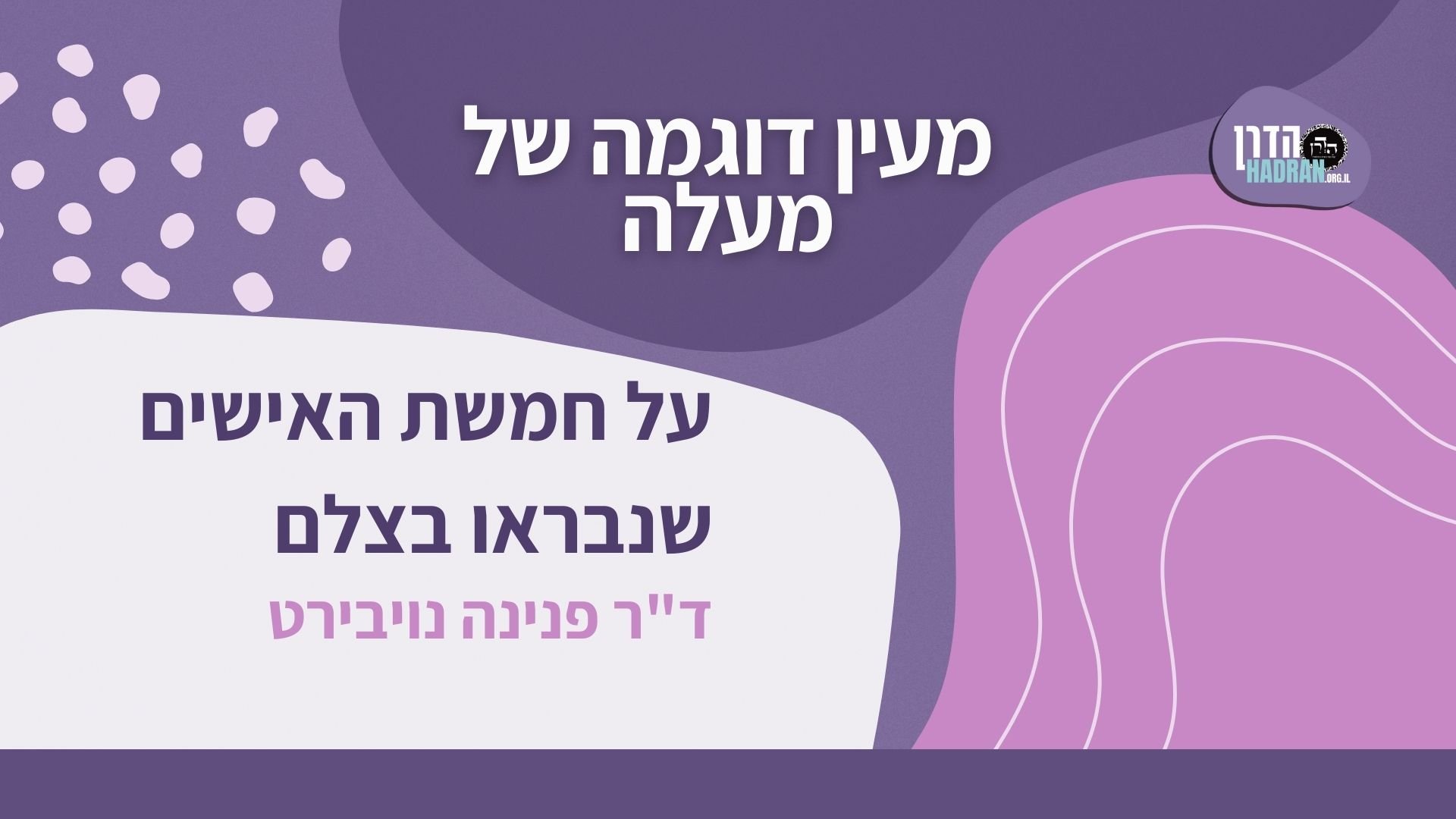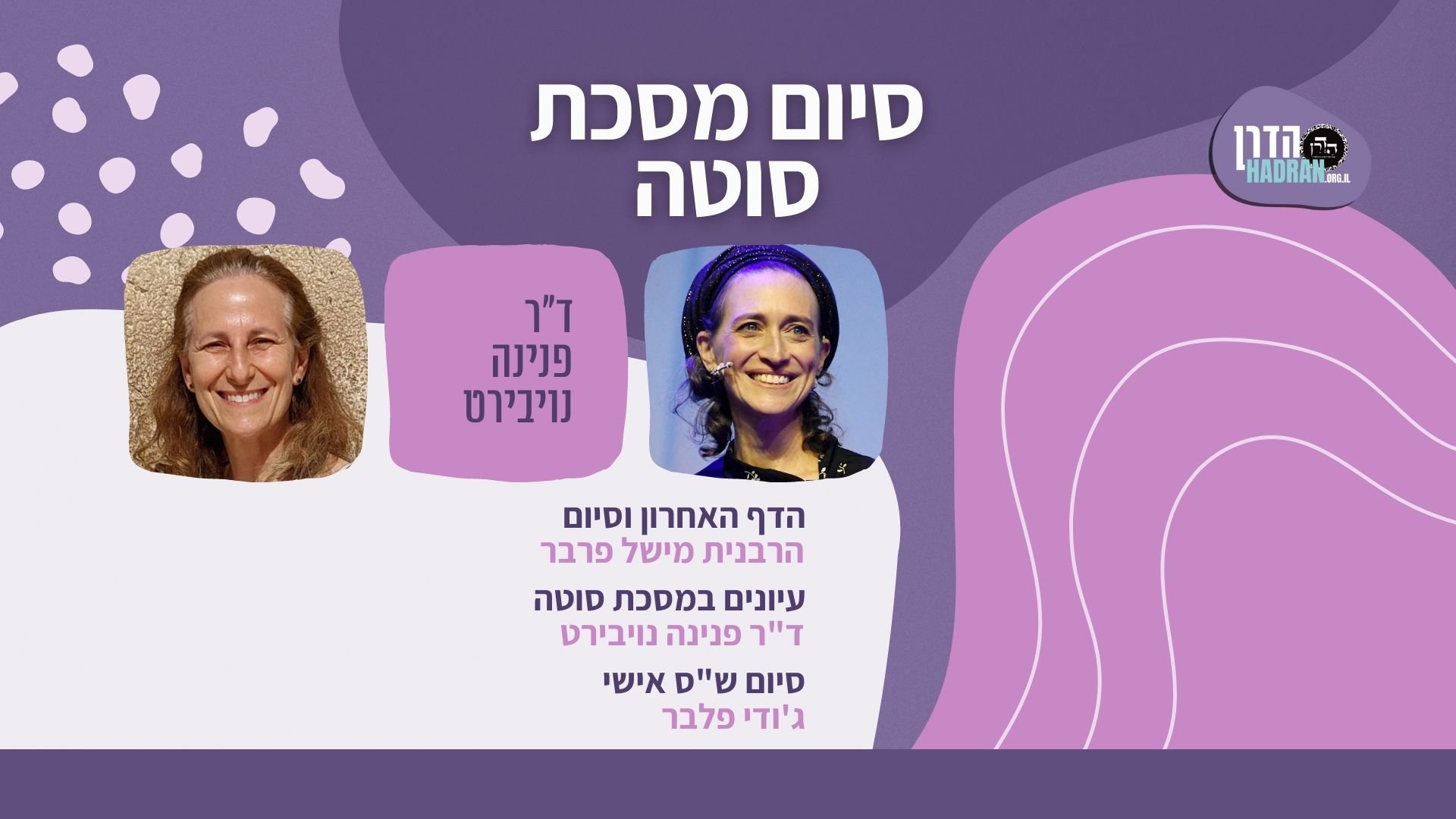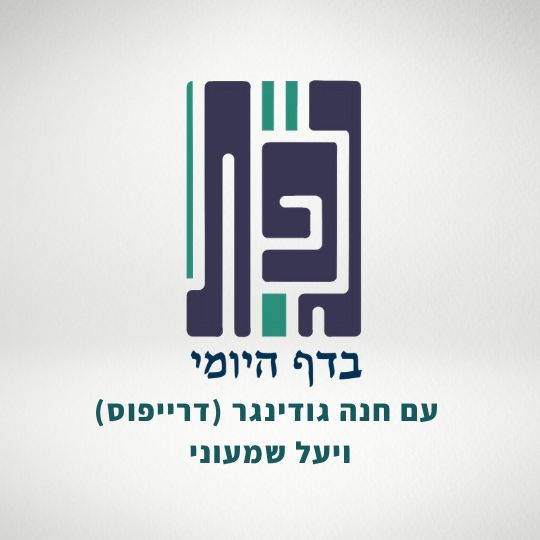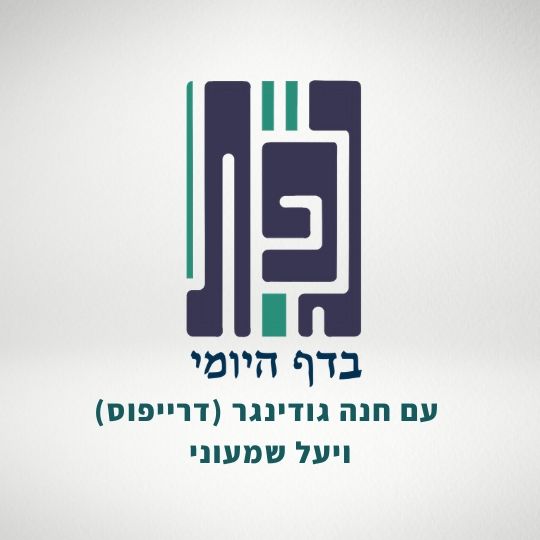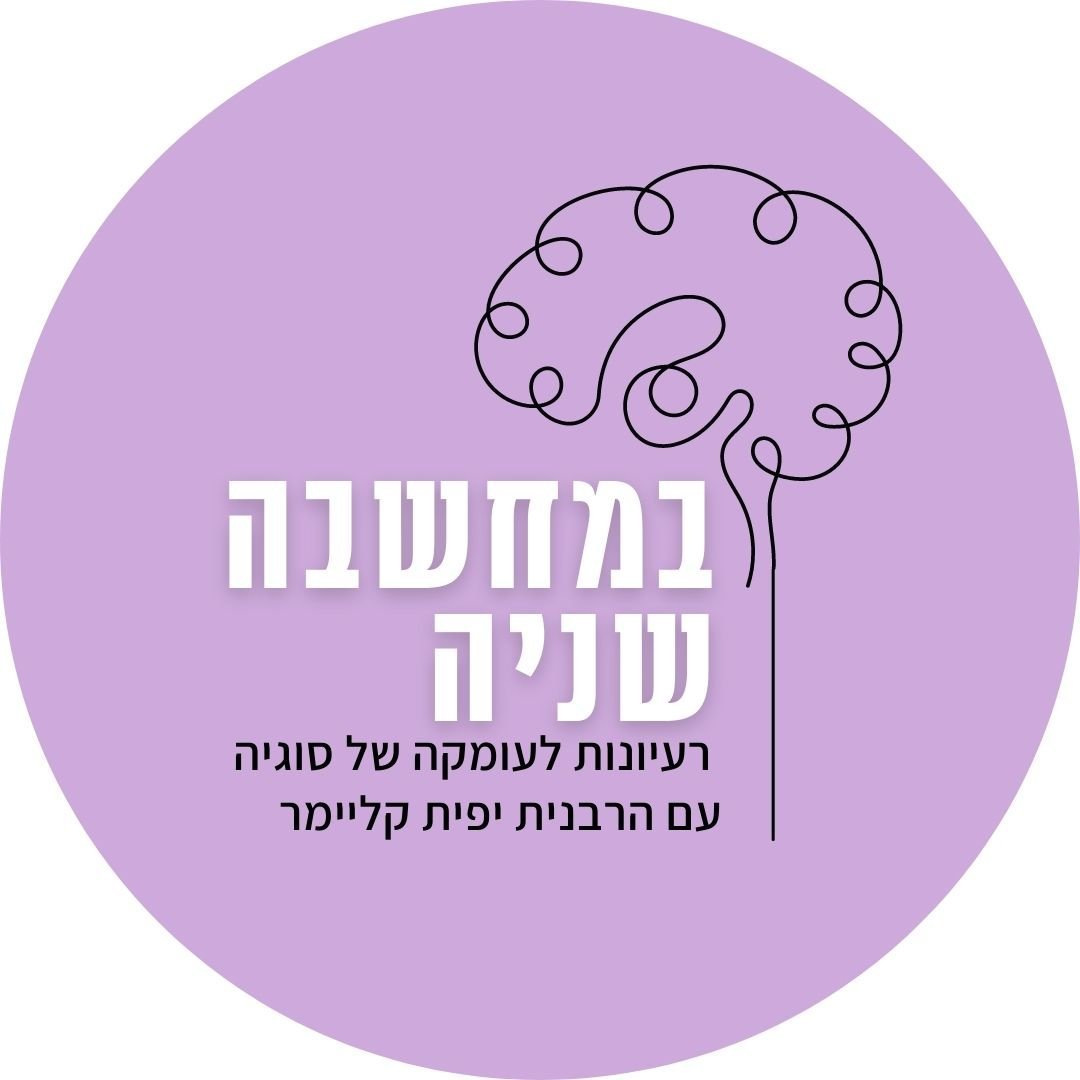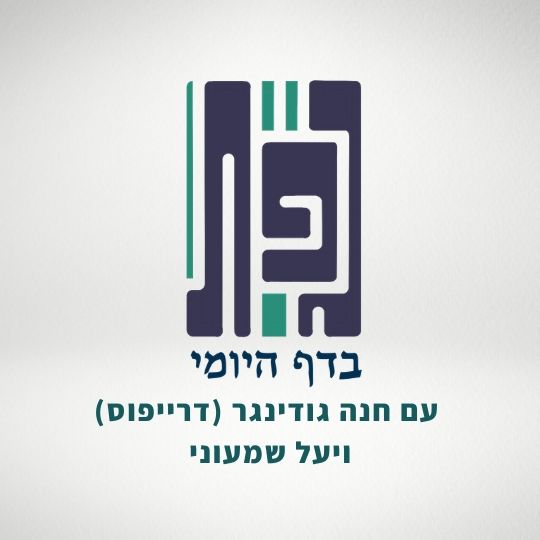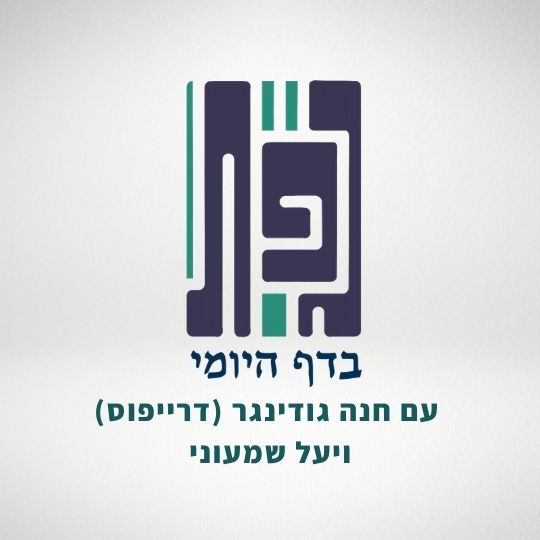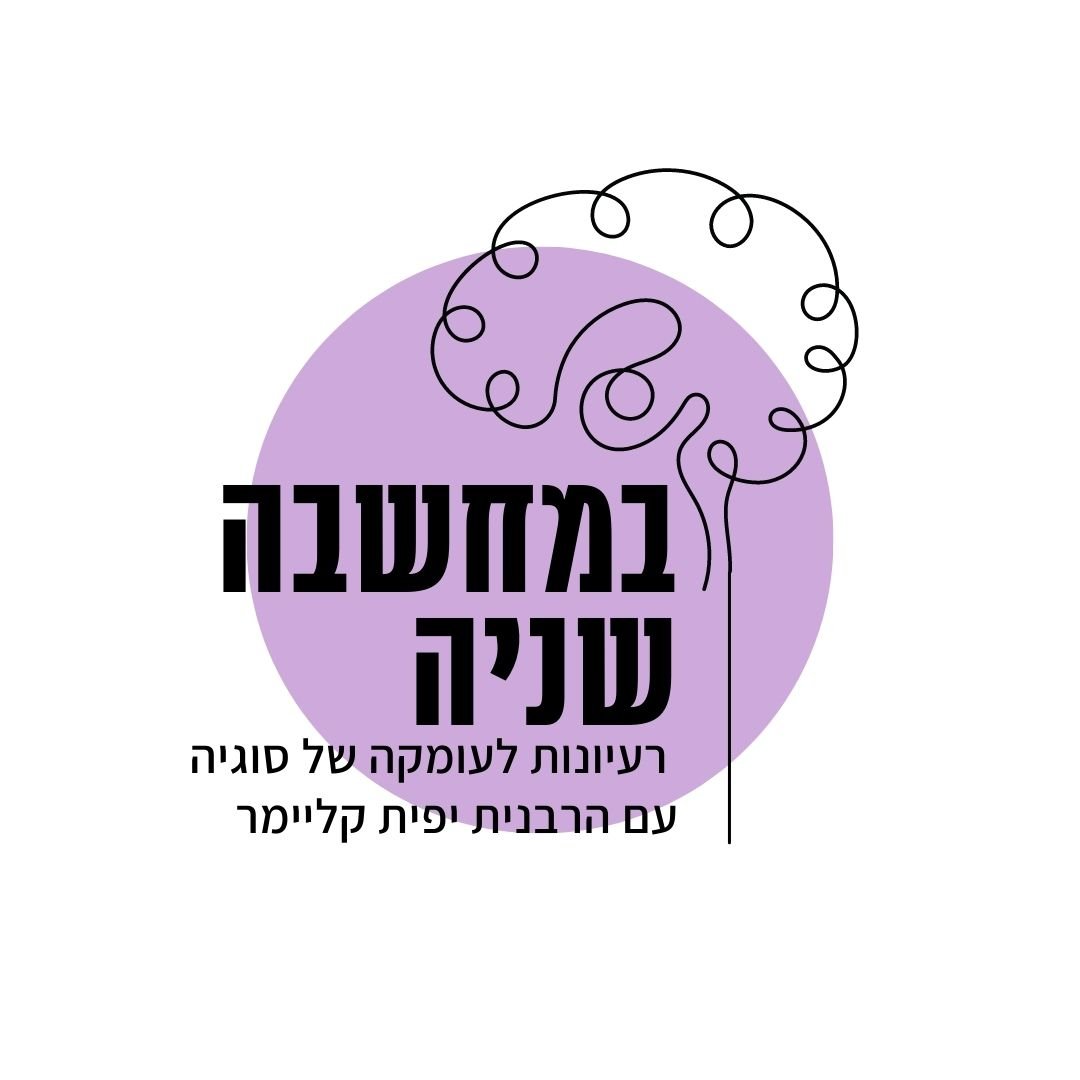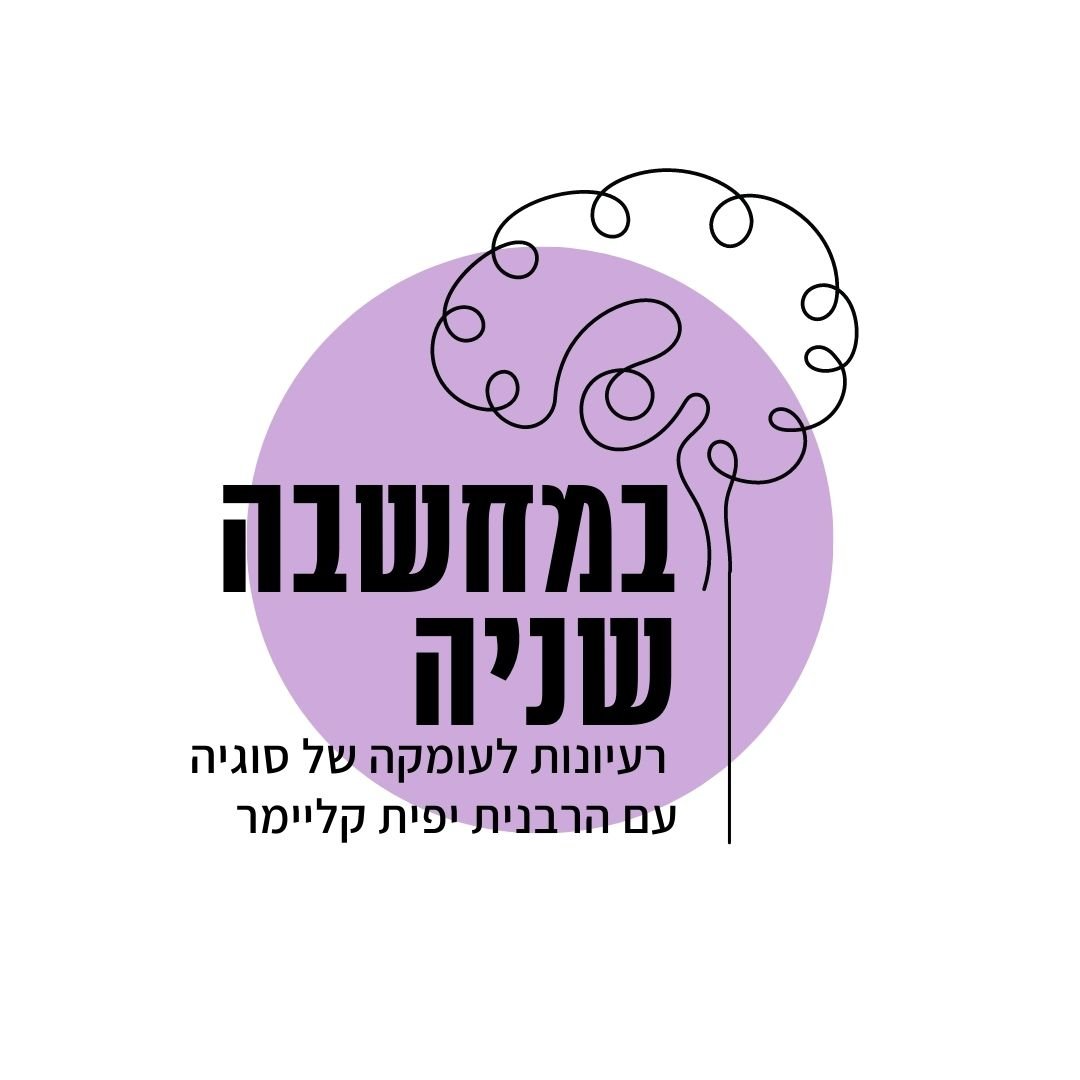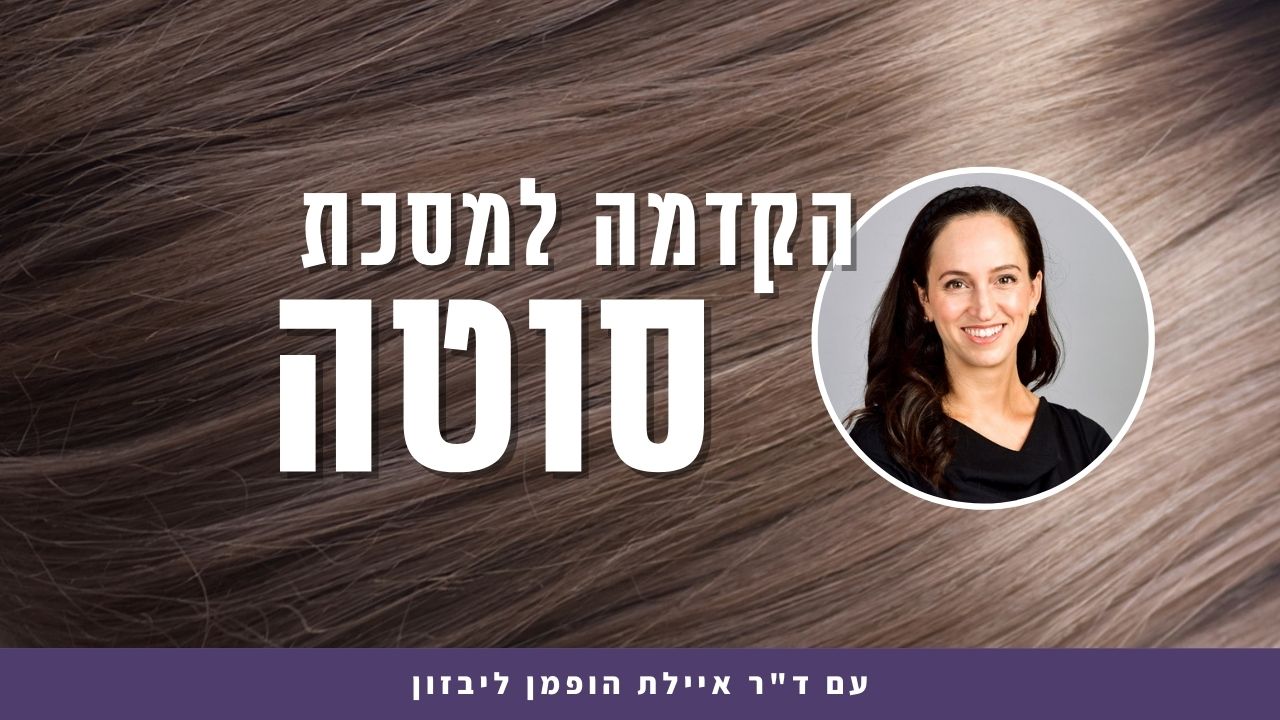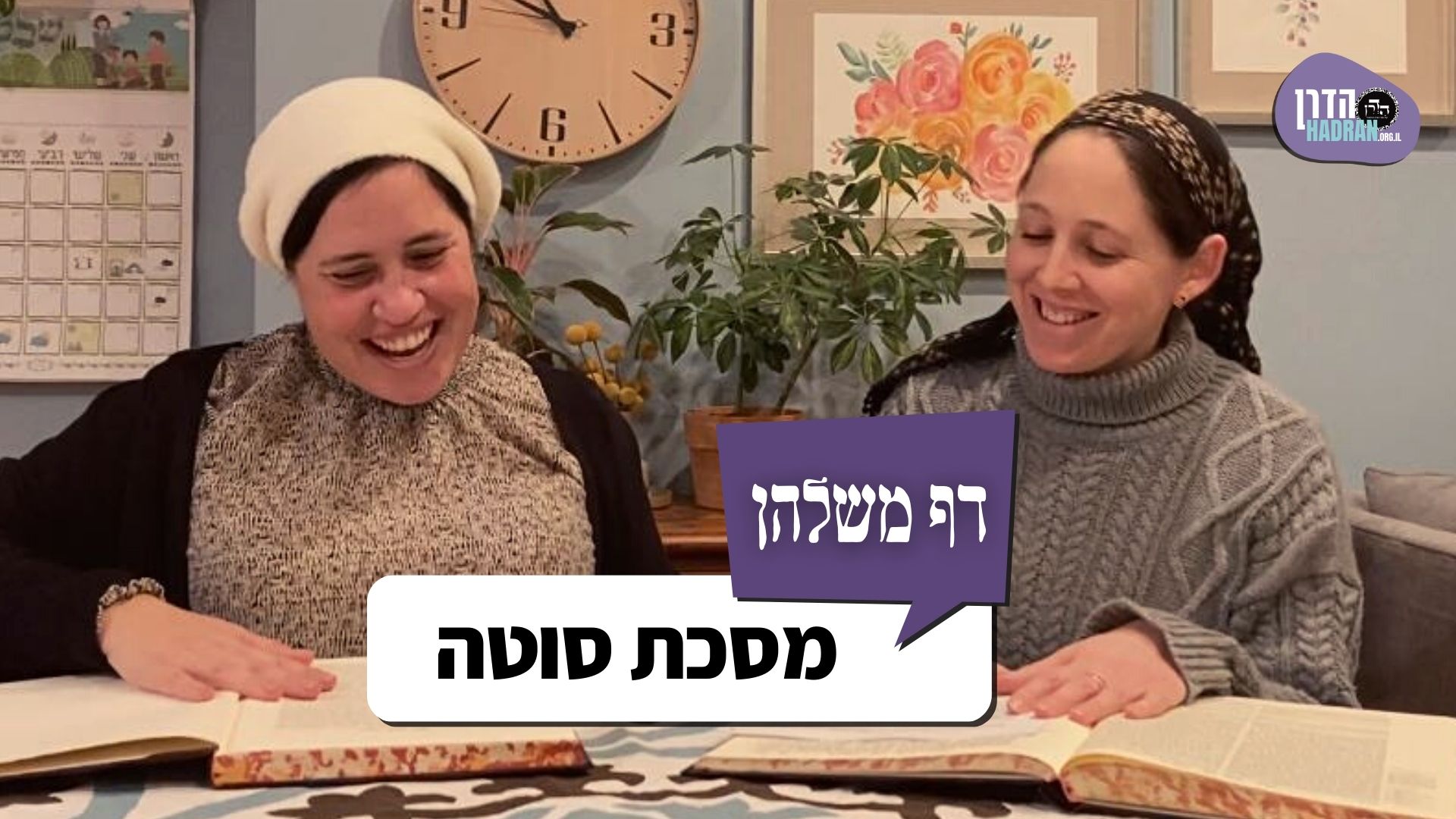כמה גבוה עמדו המים בירדן כשבני ישראל עברו? מהן שלוש הדברים שאמר/ציווה יהושע לעם כשעמדו בתוך הירדן? האבנים שלקחו מהירדן שקלו 40 סאה. מכאן הבינו שאדם יכול לסחוב פי שלוש מהמשקל הזה אם מישהו אחר מטעין את המשא עליו ומכאן שיעור שהאשכול ענבים שהוציאו המרגלים מהארץ שקל 960 סאה כי שמונה אנשים סחבו אותו. באיזה צורה היו המוטות כשסחבו את האשכול? האם ישראל עברו בירדן בצורה שחנו במדבר או בשורה? דורשים את פסוקי המרגלים – מי ביקש לשלוח מרגלים (איך פותרים את הסתירה בין התיאור בספר במדבר והתיאור בספר דברים)? איך דורשים שמות המרגלים? למה כתוב "ויעלו בנגב” ברבים "ויבא עד חברון” ביחיד? מה זה מלמד על כלב? איך דורשים שמות הענקים? איך מסבירים את הפסוק "חברון נבנתה שבע שנים לפני צען מצרים”?
הלימוד החודש מוקדש לרפואת פיליס הכט, גיטל פעשא בת מאשה רחל על ידי חברותיה הרבות שאוהבות ומעריכות אותה.
רוצה להקדיש שיעור?

כלים
הלימוד החודש מוקדש לרפואת פיליס הכט, גיטל פעשא בת מאשה רחל על ידי חברותיה הרבות שאוהבות ומעריכות אותה.
כלים
העמקה
רוצה להבין מה באמת קורה מתחת לפני השטח של הסוגיה?
שיעורים, פודקאסטים והרחבות של מיטב המורות שלנו יפתחו לך עוד זוויות וכיווני חשיבה.
חדשה בלימוד הגמרא?
זה הדף הראשון שלך? איזו התרגשות עצומה! יש לנו בדיוק את התכנים והכלים שיעזרו לך לעשות את הצעדים הראשונים ללמידה בקצב וברמה שלך, כך תוכלי להרגיש בנוח גם בתוך הסוגיות המורכבות ומאתגרות.
פסיפס הלומדות שלנו
גלי את קהילת הלומדות שלנו, מגוון נשים, רקעים וסיפורים. כולן חלק מתנועה ומסע מרגש ועוצמתי.
סוטה לד
וְכֵיוָן שֶׁנִּיטְבְּלוּ רַגְלֵי כֹהֲנִים בַּמַּיִם, חָזְרוּ הַמַּיִם לַאֲחוֹרֵיהֶם, שֶׁנֶּאֱמַר: ״וּכְבוֹא נוֹשְׂאֵי הָאָרוֹן עַד הַיַּרְדֵּן וְגוֹ׳ וַיַּעַמְדוּ הַמַּיִם הַיֹּרְדִים מִלְמַעְלָה קָמוּ נֵד אֶחָד״. וְכַמָּה גּוֹבְהָן שֶׁל מַיִם — שְׁנֵים עָשָׂר מִיל עַל שְׁנֵים עָשָׂר מִיל, כְּנֶגֶד מַחֲנֵה יִשְׂרָאֵל. דִּבְרֵי רַבִּי יְהוּדָה.
And once the feet of the priests were immersed in the water of the Jordan River, the water flowed backward, as it is stated: “And when those carrying the Ark came to the Jordan and the feet of the priests that bore the ark were dipped in the brink of the water, for the Jordan overflows all its banks all the time of harvest; and the waters that came down from above stood, and rose up in one heap” (Joshua 3:15–16). And what was the height of the water? Twelve mil by twelve mil, parallel to the size of the camp of the Jewish people who were passing through the Jordan. This is the statement of Rabbi Yehuda.
אָמַר לוֹ רַבִּי אֶלְעָזָר בְּרַבִּי שִׁמְעוֹן: לִדְבָרֶיךָ, אָדָם קַל, אוֹ מַיִם קַלִּים? הֱוֵי אוֹמֵר: מַיִם קַלִּים. אִם כֵּן, בָּאִין מַיִם וְשׁוֹטְפִין אוֹתָן!
Rabbi Elazar, son of Rabbi Shimon, said to him: According to your statement, does a person move faster or does water move faster? You must say that water moves faster than a person. If that is so, then before the camp of Israel crossed the river the water would come and drown them, as, after the water rose up to a height of twelve mil it then began flowing normally again.
אֶלָּא מְלַמֵּד שֶׁהָיוּ מַיִם נִגְדָּשִׁין וְעוֹלִין כִּיפִּין עַל גַּבֵּי כִּיפִּין, יָתֵר מִשְּׁלֹשׁ מֵאוֹת מִיל, עַד שֶׁרָאוּ אוֹתָן כׇּל מַלְכֵי מִזְרָח וּמַעֲרָב, שֶׁנֶּאֱמַר: ״וַיְהִי כִשְׁמֹעַ כׇּל מַלְכֵי הָאֱמֹרִי אֲשֶׁר בְּעֵבֶר הַיַּרְדֵּן יָמָּה וְכׇל מַלְכֵי הַכְּנַעֲנִי אֲשֶׁר עַל הַיָּם אֵת אֲשֶׁר הוֹבִישׁ ה׳ אֶת מֵי הַיַּרְדֵּן מִפְּנֵי בְנֵי יִשְׂרָאֵל עַד עׇבְרָם וַיִּמַּס לְבָבָם וְלֹא הָיָה בָם עוֹד רוּחַ מִפְּנֵי בְּנֵי יִשְׂרָאֵל״.
Rather, this teaches that the water gathered and rose in heaps upon heaps to a height of more than three hundred mil, until all the kings of the East and West saw it, as it is stated: “And it came to pass, when all the kings of the Amorites, that were beyond the Jordan westward, and all the kings of the Canaanites, that were by the sea, heard that the Lord had dried up the waters of the Jordan from before the children of Israel, until they were passed over, that their heart melted, neither was there spirit in them anymore, because of the children of Israel” (Joshua 5:1).
וְאַף רָחָב הַזּוֹנָה אָמְרָה לִשְׁלוּחֵי יְהוֹשֻׁעַ ״כִּי שָׁמַעְנוּ אֵת אֲשֶׁר הוֹבִישׁ ה׳ אֶת מֵי יַם סוּף וְגוֹ׳״, וּכְתִיב: ״וַנִּשְׁמַע וַיִּמַּס לְבָבֵנוּ וְלֹא קָמָה עוֹד וְגוֹ׳״.
And even Rahab the prostitute said to Joshua’s messengers: “For we have heard how the Lord dried up the water of the Red Sea before you” (Joshua 2:10). And it is written: “And as soon as we had heard it, our hearts melted, neither did there remain any more spirit in any man, because of you” (Joshua 2:11). Evidently, the Canaanites were still terrified due to the splitting of the Red Sea, although that had taken place years earlier and in a distant location. It is understood from here how terrified they became when a similar miracle occurred close to where they lived.
עוֹדָם בַּיַּרְדֵּן אָמַר לָהֶם יְהוֹשֻׁעַ: דְּעוּ עַל מָה אַתֶּם עוֹבְרִים אֶת הַיַּרְדֵּן — עַל מְנָת שֶׁתּוֹרִישׁוּ אֶת יוֹשְׁבֵי הָאָרֶץ מִפְּנֵיכֶם, שֶׁנֶּאֱמַר: ״וְהוֹרַשְׁתֶּם אֶת כׇּל יוֹשְׁבֵי הָאָרֶץ מִפְּנֵיכֶם וְגוֹ׳״. אִם אַתֶּם עוֹשִׂין כֵּן — מוּטָב. וְאִם לָאו, בָּאִין מַיִם וְשׁוֹטְפִין אוֹתִיכֶם. מַאי ״אוֹתִיכֶם״ — אוֹתִי וְאֶתְכֶם.
While the Jewish people were still in the Jordan, Joshua said to them: Know for what purpose you are crossing the Jordan. It is in order to drive out the inhabitants of the land from before you, as it is stated: “And you shall drive out all the inhabitants of the land from before you” (Numbers 33:52). If you will do so, then all is well, but if not, water will come and drown otikhem. The Gemara asks: What is the meaning of the word otikhem? The Gemara explains: It is a combination of the words me [oti] and you [etkhem].
עוֹדָם בַּיַּרְדֵּן אָמַר לָהֶן יְהוֹשֻׁעַ: ״הָרִימוּ לָכֶם אִישׁ אֶבֶן אַחַת עַל שִׁכְמוֹ לְמִסְפַּר שִׁבְטֵי יִשְׂרָאֵל וְגוֹ׳״, וּכְתִיב: ״לְמַעַן תִּהְיֶה זֹאת אוֹת בְּקִרְבְּכֶם כִּי יִשְׁאָלוּן בְּנֵיכֶם מָחָר לֵאמֹר מָה הָאֲבָנִים הָאֵלֶּה לָכֶם וְגוֹ׳״, סִימָן לַבָּנִים שֶׁעָבְרוּ אָבוֹת אֶת הַיַּרְדֵּן.
While they were still in the Jordan, Joshua said to them: “Pick up every man of you a stone upon his shoulder, according to the number of the tribes of the children of Israel” (Joshua 4:5). And it is written: “That this may be a sign among you, that when your children ask in time to come, saying: What do you mean by these stones?” (Joshua 4:6). This will be a sign for the children that their ancestors crossed the Jordan.
עוֹדָם בַּיַּרְדֵּן אָמַר לָהֶן יְהוֹשֻׁעַ: ״שְׂאוּ לָכֶם מִזֶּה מִתּוֹךְ הַיַּרְדֵּן מִמַּצַּב רַגְלֵי הַכֹּהֲנִים הָכִין שְׁתֵּים עֶשְׂרֵה אֲבָנִים וְהַעֲבַרְתֶּם אוֹתָם עִמָּכֶם וְהִנַּחְתֶּם אוֹתָם בַּמָּלוֹן אֲשֶׁר תָּלִינוּ בוֹ הַלַּיְלָה וְגוֹ׳״. יָכוֹל בְּכׇל מָלוֹן וּמָלוֹן — תַּלְמוּד לוֹמַר: ״אֲשֶׁר תָּלִינוּ בוֹ הַלָּיְלָה״.
While they were still in the Jordan, Joshua said to them: “Take out of the midst of the Jordan, out of the place where the priests’ feet stood, twelve stones made ready, and carry them over with you, and lay them down in the lodging place, where you shall lodge this night” (Joshua 4:3). One might have thought that they were required to place these stones at each and every lodging place where they stayed. Therefore, the verse states: “Where you shall lodge this night,” meaning only on that night.
אָמַר רַבִּי יְהוּדָה: אַבָּא חֲלַפְתָּא וְרַבִּי אֱלִיעֶזֶר בֶּן מַתְיָא וַחֲנַנְיָא בֶּן חֲכִינַאי עָמְדוּ עַל אוֹתָן אֲבָנִים, וְשִׁיעֲרוּם כׇּל אַחַת וְאַחַת שְׁקוּלָה כְּאַרְבָּעִים סְאָה. וּגְמִירִי דִּטְעוּנָא דְּמַדְלֵי אִינִישׁ לְכַתְפֵּיהּ — תִּילְתָּא דִּטְעוּנֵיהּ הָוֵי.
Rabbi Yehuda says: Abba Ḥalafta, and Rabbi Eliezer ben Matya, and Ḥananya ben Ḥakhinai stood on those same stones that the Jewish people took from the Jordan, and they measured them and found that each and every one weighed about forty se’a. And it is learned as a tradition that a load that one can lift onto his shoulders is one-third of the weight of the load that he can carry when others load it onto him.
מִכָּאן אַתָּה מְחַשֵּׁב לָאֶשְׁכּוֹל, שֶׁנֶּאֱמַר: ״וַיִּשָּׂאֻהוּ בַמּוֹט בִּשְׁנָיִם״. מִמַּשְׁמַע שֶׁנֶּאֱמַר ״בַּמּוֹט״, אֵינִי יוֹדֵעַ שֶׁבִּשְׁנַיִם? מָה תַּלְמוּד לוֹמַר ״בִּשְׁנָיִם״ — בִּשְׁנֵי מוֹטוֹת.
From here you can calculate the size of the cluster of grapes that the spies carried together from Eretz Yisrael, as it is stated: “And they carried it upon a pole between two” (Numbers 13:23). From the fact that it is stated that they carried the cluster of grapes “on a pole” do I not know that it was carried by two people? That is the only way it can be carried on a pole. What is the meaning when the verse states: “Between two”? It means that the spies carried it on two poles, and four people carried the cluster of grapes together. From here it can be deduced that the weight of the cluster was 480 se’a.
אָמַר רַבִּי יִצְחָק: טוּרְטָנֵי, וְטוּרְטָנֵי דְטוּרְטָנֵי, הָא כֵּיצַד? שְׁמֹנָה נָשְׂאוּ אֶשְׁכֹּל, אֶחָד נָשָׂא רִימּוֹן, וְאֶחָד נָשָׂא תְּאֵינָה. יְהוֹשֻׁעַ וְכָלֵב לֹא נָשְׂאוּ כְּלוּם. אִי בָּעֵית אֵימָא מִשּׁוּם דַּחֲשִׁיבִי. וְאִי בָּעֵית אֵימָא שֶׁלֹּא הָיוּ בְּאוֹתָהּ עֵצָה.
Rabbi Yitzḥak said: They were configured like upper rods of scales [turtanei] that are balanced on the lower rods of scales, i.e., there were not two but four poles. How so? Eight of the spies carried the cluster of grapes, one of them carried a pomegranate, and one carried a fig. Joshua and Caleb did not carry anything. Why did Joshua and Caleb not carry anything? If you wish, say that it is because they were more prominent than the others and it was beneath their dignity to carry such a load. And if you wish, say instead that they did not take part in the wicked counsel of the spies, as the cluster of grapes was brought by the spies to scare the people.
פְּלִיגִי בַּהּ רַבִּי אַמֵּי וְרַבִּי יִצְחָק נַפָּחָא. חַד אָמַר: לְדִבְרֵי רַבִּי יְהוּדָה —
§ Rabbi Ami and Rabbi Yitzḥak Nappaḥa disagree with regard to the dispute between the tanna’im as to the height of the water when the Jewish people crossed the Jordan. One says: According to the statement of Rabbi Yehuda, that the water stood at the height of twelve mil,
כַּחֲנִיָּיתָן עָבְרוּ. לְדִבְרֵי רַבִּי אֶלְעָזָר בְּרַבִּי שִׁמְעוֹן — בְּזֶה אַחַר זֶה עָבְרוּ.
the Jewish people crossed in the same formation as they camped. It was necessary for the water to stand only twelve mil high to allow for the entire encampment to pass through the Jordan. According to the statement of Rabbi Elazar, son of Rabbi Shimon, who said the water stood at a height of over three hundred mil, the water had to reach these heights to allow for enough time for everyone to cross the Jordan, as they crossed one after the other.
וְחַד אָמַר: בֵּין מָר וּבֵין מָר כַּחֲנִיָּיתָן עָבְרוּ. מָר סָבַר: אָדָם קַל, וּמָר סָבַר: מַיִם קַלִּים.
And one says: According to both this Sage and that Sage, they crossed in the same formation as they camped. However, one Sage, Rabbi Yehuda, holds that a person moves faster than water, and one Sage, Rabbi Elazar son of Rabbi Shimon, holds that water moves faster than a person does.
״שְׁלַח לְךָ אֲנָשִׁים״, אָמַר רֵישׁ לָקִישׁ: ״שְׁלַח לְךָ״ — מִדַּעְתֶּךָ. וְכִי אָדָם זֶה בּוֹרֵר חֵלֶק רַע לְעַצְמוֹ? וְהַיְינוּ דִּכְתִיב: ״וַיִּיטַב בְּעֵינַי הַדָּבָר״. אָמַר רֵישׁ לָקִישׁ: ״בְּעֵינַי״, וְלֹא בְּעֵינָיו שֶׁל מָקוֹם.
§ Since the Gemara mentioned the cluster of grapes that the spies brought back from Eretz Yisrael, it continues discussing the story of the spies. It is stated in the Torah that God told Moses: “Send you men” (Numbers 13:2). Reish Lakish says: “Send you” means that you should send them at your own discretion and not as a divine command. As, if it were a divine command, does a person choose a bad portion for himself? Since God knew the nature of these spies and that they would ultimately slander the land, He certainly would not have sent them Himself. And this is the meaning of that which is written in the passage where Moses retold the story of the spies: “And it was good in my eyes” (Deuteronomy 1:23), and Reish Lakish says: The implication of these words is that it seemed good “in my eyes,” but not in the eyes of the Omnipresent.
״וְיַחְפְּרוּ לָנוּ אֶת הָאָרֶץ״, אָמַר רַבִּי חִיָּיא בַּר אַבָּא: מְרַגְּלִים לֹא נִתְכַּוְּונוּ אֶלָּא לְבוֹשְׁתָּהּ שֶׁל אֶרֶץ יִשְׂרָאֵל. כְּתִיב הָכָא: ״וְיַחְפְּרוּ לָנוּ אֶת הָאָרֶץ״, וּכְתִיב הָתָם: ״וְחָפְרָה הַלְּבָנָה וּבוֹשָׁה הַחַמָּה וְגוֹ׳״.
The Torah relates that the people asked Moses to send spies so “that they may search the land for us” (Deuteronomy 1:22). Rabbi Ḥiyya bar Abba says: When the Jewish people asked to send spies, their intention was only to shame Eretz Yisrael. It is written here: “That they may search [veyaḥperu] the land for us,” and it is written there: “Then the moon will be embarrassed [veḥafera], and the sun will be ashamed” (Isaiah 24:23).
״וְאֵלֶּה שְׁמוֹתָם לְמַטֵּה רְאוּבֵן שַׁמּוּעַ בֶּן זַכּוּר״, אָמַר רַבִּי יִצְחָק: דָּבָר זֶה מָסוֹרֶת בְּיָדֵינוּ מֵאֲבוֹתֵינוּ: מְרַגְּלִים עַל שֵׁם מַעֲשֵׂיהֶם נִקְרְאוּ. וְאָנוּ לֹא עָלְתָה בְּיָדֵינוּ אֶלָּא אֶחָד: ״סְתוּר בֶּן מִיכָאֵל״, ״סְתוּר״ — שֶׁסָּתַר מַעֲשָׂיו שֶׁל הַקָּדוֹשׁ בָּרוּךְ הוּא. ״מִיכָאֵל״ — שֶׁעָשָׂה עַצְמוֹ מָךְ.
The Torah states with regard to the spies: “And these were their names: Of the tribe of Reuben, Shammua the son of Zaccur” (Numbers 13:4). Rabbi Yitzḥak says: This statement that follows is a tradition of ours that was passed down to us from our ancestors: The spies were named after their actions, but we have obtained the interpretation of only one name, the name of “Sethur the son of Michael” (Numbers 13:13). He is called Sethur, as he hid [satar] the actions of the Holy One, Blessed be He. In other words, he ignored the miracles that God performed for the Jewish people in Egypt and in the wilderness. He is called Michael, as he made Him, God, appear weak [makh] by saying that there was not enough food in the land for everyone.
אָמַר רַבִּי יוֹחָנָן, אַף אָנוּ נֹאמַר: ״נַחְבִּי בֶּן וׇפְסִי״, ״נַחְבִּי״ — שֶׁהֶחְבִּיא דְּבָרָיו שֶׁל הַקָּדוֹשׁ בָּרוּךְ הוּא. ״וׇפְסִי״ — שֶׁפִּיסַּע עַל מִדּוֹתָיו שֶׁל הַקָּדוֹשׁ בָּרוּךְ הוּא.
Rabbi Yoḥanan says: We can also say an interpretation of the name: “Nahbi the son of Vophsi” (Numbers 13:14): He is called Nahbi, as he concealed [heḥbi] the statement of the Holy One, Blessed be He, that the land is good, by delivering a distorted description of it. He is called Vophsi, as he stomped [pisse’a] on the attributes of the Holy One, Blessed be He, i.e., he did not believe in His promise to give Eretz Yisrael to the Jewish people.
״וַיַּעֲלוּ בַנֶּגֶב וַיָּבֹא עַד חֶבְרוֹן״ — ״וַיָּבֹאוּ״ מִבְּעֵי לֵיהּ? אָמַר רָבָא: מְלַמֵּד שֶׁפֵּירַשׁ כָּלֵב מֵעֲצַת מְרַגְּלִים, וְהָלַךְ וְנִשְׁתַּטַּח עַל קִבְרֵי אָבוֹת. אָמַר לָהֶן: אֲבוֹתַי! בִּקְּשׁוּ עָלַי רַחֲמִים שֶׁאֶנָּצֵל מֵעֲצַת מְרַגְּלִים.
It is also stated with regard to the spies: “And they went up into the south, and he came to Hebron” (Numbers 13:22). Why is the phrase “and he came” written in the singular form? The verse should have said: And they came. Rava says: This teaches that Caleb separated himself from the counsel of the other spies and went and prostrated himself on the graves of the forefathers in Hebron. He said to them: My forefathers, pray for mercy for me so that I will be saved from the counsel of the spies.
יְהוֹשֻׁעַ כְּבָר בִּקֵּשׁ מֹשֶׁה עָלָיו רַחֲמִים, שֶׁנֶּאֱמַר: ״וַיִּקְרָא מֹשֶׁה לְהוֹשֵׁעַ בִּן נוּן יְהוֹשֻׁעַ״, יָהּ יוֹשִׁיעֲךָ מֵעֲצַת מְרַגְּלִים. וְהַיְינוּ דִּכְתִיב: ״וְעַבְדִּי כָלֵב עֵקֶב הָיְתָה רוּחַ אַחֶרֶת עִמּוֹ וְגוֹ׳״.
The Gemara explains: Joshua did not go to the graves of the forefathers because Moses had already prayed for mercy for him, as it is stated: “And Moses called Hoshea son of Nun Joshua [Yehoshua]” (Numbers 13:16), meaning: God will save you [Ya yoshiakha] from the counsel of the spies. And this is the meaning of that which is written: “But My servant Caleb, because he had another spirit with him, and has followed Me fully, him will I bring into the land where into he went” (Numbers 14:24), which implies that Caleb changed his mind over time. Joshua, however, was opposed to the intentions of the other spies from the outset.
״וְשָׁם אֲחִימַן שֵׁשַׁי וְתַלְמַי וְגוֹ׳״, ״אֲחִימַן״ — מְיוּמָּן שֶׁבְּאֶחָיו, ״שֵׁשַׁי״ — שֶׁמֵּשִׂים אֶת הָאָרֶץ כִּשְׁחִתוֹת, ״תַּלְמַי״ — שֶׁמֵּשִׂים אֶת הָאָרֶץ תְּלָמִים תְּלָמִים.
The verse continues to state about Hebron: “And Ahiman, Sheshai, and Talmai, the children of Anak, were there” (Numbers 13:22). Ahiman was called by this name because he was the most skilled [meyumman] among his brothers. Sheshai was called by his name because he would turn the land that he treaded upon into ditches [sheḥatot] due to his large dimensions. Talmai was called this because he would turn the land that he treaded upon into furrows upon furrows [telamim] due to his weight.
דָּבָר אַחֵר: אֲחִימַן בָּנָה עֲנָת, שֵׁשַׁי בָּנָה אָלֻשׁ, תַּלְמַי בָּנָה תַּלְבּוּשׁ. ״יְלִידֵי הָעֲנָק״ — שֶׁמַּעֲנִיקִין חַמָּה בְּקוֹמָתָן.
Alternatively, their names signify another matter: Ahiman is the one who built the city of Anat. Sheshai built the city of Alush. Talmai built the city of Talbush. The verse describes them as “the children of Anak” because they were so tall and large that it appeared as if they were wearing [ma’anikin] the sun as a necklace due to their height.
״וְחֶבְרוֹן שֶׁבַע שָׁנִים נִבְנְתָה״. מַאי ״נִבְנְתָה״? אִילֵימָא נִבְנְתָה מַמָּשׁ, אֶפְשָׁר אָדָם בּוֹנֶה בַּיִת לִבְנוֹ קָטָן קוֹדֶם לִבְנוֹ גָּדוֹל?! דִּכְתִיב: ״וּבְנֵי חָם כּוּשׁ וּמִצְרַיִם וְגוֹ׳״.
The continuation of the verse states: “Now Hebron was built seven years [shanim] before Zoan of Egypt [Mitzrayim]” (Numbers 13:22). The Gemara asks: What is the meaning of the phrase “was built”? If we say that it was actually built seven years before Zoan, would a person build a house for his younger son before he builds one for his older son? Canaan was the youngest son of Ham, as it is written: “And the sons of Ham: Cush, and Mizraim, and Put, and Canaan” (Genesis 10:6). How then could Hebron, a city in the land of Canaan, have been built before Zoan, a city in the land of Egypt, occupied by the descendants of Mizraim?
אֶלָּא שֶׁהָיְתָה מְבוּנָּה עַל אֶחָד מִשִּׁבְעָה בְּצוֹעַן. וְאֵין לְךָ טְרָשִׁים בְּכׇל אֶרֶץ יִשְׂרָאֵל יָתֵר מֵחֶבְרוֹן, מִשּׁוּם דְּקָבְרִי בָּהּ שָׁיכְבֵי. וְאֵין לְךָ מְעוּלָּה בְּכׇל הָאֲרָצוֹת יָתֵר מֵאֶרֶץ מִצְרַיִם, שֶׁנֶּאֱמַר: ״כְּגַן ה׳ כְּאֶרֶץ מִצְרַיִם״, וְאֵין לְךָ מְעוּלָּה בְּכׇל אֶרֶץ מִצְרַיִם יָתֵר מִצּוֹעַן, דִּכְתִיב: ״כִּי הָיוּ בְצֹעַן שָׂרָיו״, וַאֲפִילּוּ הָכִי חֶבְרוֹן מְבוּנָּה אֶחָד מִשִּׁבְעָה בְּצוֹעַן.
Rather, the meaning of the verse is that Hebron was seven times more fruitful [mevunna] than Zoan. And there is no stonier land in Eretz Yisrael than Hebron. This is evident because they would bury the dead there, just as the forefathers were buried there. This was done only in land that was not suitable for agriculture. And of all the lands, there is none of a higher quality than the land of Egypt, as it is stated: “Like the garden of the Lord, like the land of Egypt” (Genesis 13:10). And there was no higher-quality land in all of the land of Egypt than Zoan, as it is written with regard to Pharaoh’s ministers, who would certainly have lived on the finest land in the country: “For his princes are in Zoan” (Isaiah 30:4). And even so, Hebron was seven times more fruitful than Zoan.
וְחֶבְרוֹן טְרָשִׁים הֲוַי? וְהָא כְּתִיב: ״וַיְהִי מִקֵּץ אַרְבָּעִים שָׁנָה וַיֹּאמֶר אַבְשָׁלוֹם אֶל הַמֶּלֶךְ אֵלְכָה נָּא וְגוֹ׳״, וְאָמַר רַב אַוְיָא וְאִיתֵּימָא רַבָּה בַּר בַּר חָנָן: שֶׁהָלַךְ לְהָבִיא כְּבָשִׂים מֵחֶבְרוֹן. וְתַנְיָא, אֵילִים מִמּוֹאָב, כְּבָשִׂים מֵחֶבְרוֹן! מִינַּהּ, אַיְּידֵי דִּקְלִישָׁא אַרְעָא, עָבְדָה רִעְיָא וְשַׁמִּן קִנְיָינָא.
The Gemara asks: But is the land in Hebron in fact stony? But isn’t it written: “And it came to pass at the end of forty years, that Absalom said to the king: I pray, let me go and pay my vow, which I have vowed to the Lord, in Hebron” (II Samuel 15:7)? And Rav Avya says, and some say that it was Rabba bar bar Ḥanan: This means that Absalom went to bring sheep specifically from Hebron. And it is taught in a baraita (Tosefta, Menaḥot 9:3): One must bring the choicest animals to the Temple as offerings. Rams are brought from Moab, and sheep are brought from Hebron. This indicates that Hebron has rich land where fat and healthy sheep are raised. The Gemara answers: From this very source it can be proven that Hebron is not suitable for agriculture. Since the earth there is thin, it produces only grass for grazing and fattens the livestock.
״וַיָּשֻׁבוּ מִתּוּר הָאָרֶץ
The verse states: “And they returned from spying out the land at the end of forty days.
